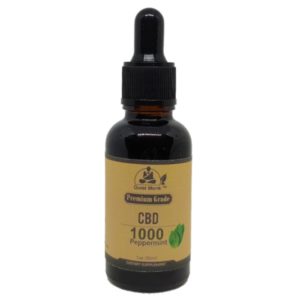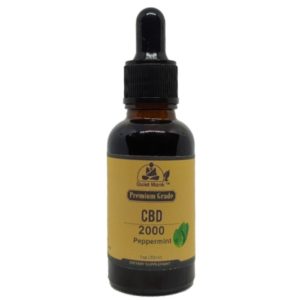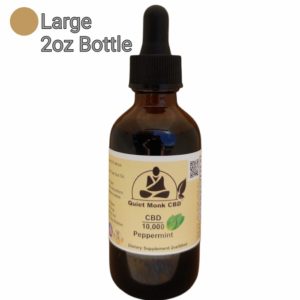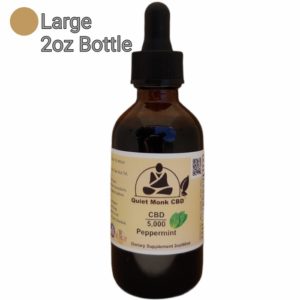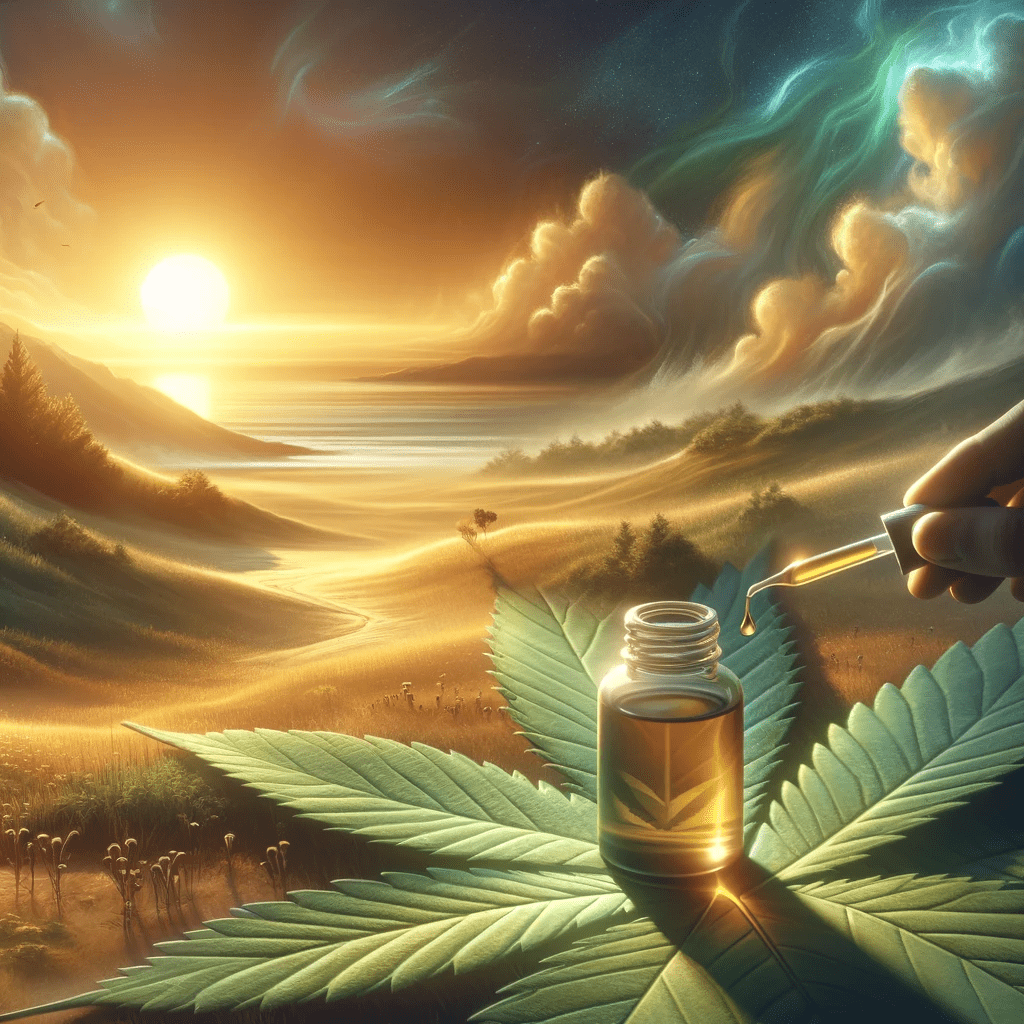
Over the last several years, the use of CBD (Cannabidiol) has gained significant attention as a natural remedy for alleviating many health conditions, including depression. As more and more people are turning to natural or alternative remedies to cope with their mental health, the interest regarding whether or not CBD may be able to alleviate symptoms of depression grows stronger. In this extensive article, we will explore the research behind CBD for depression, find out how it compares to other remedies and treatments, uncover the concern relating to the risks and side effects, and gain an understanding of the correct way CBD should be used to manage symptoms of depression.
We take a look at studies that have looked into the relationship between CBD and depression, CBD as an interaction to other forms of antidepressants, plus other alternative remedies and treatments for people experiencing depression. With this information, we hope to provide you with all that you will need to know about how CBD could potentially help with your depression, together with a warming to how it is used against other treatments. Our thorough examination of the use of CBD in the management of depression provides an overview of where CBD oil sits in amongst the other treatment options.
Key Takeaways:
- CBD may provide relief for depression, according to research.
- Studies show CBD may be used to supplement traditional depression treatments.
- It’s important to consult a doctor and carefully monitor dosage when using CBD for depression
Understanding CBD for Depression
Understanding CBD for depression involves exploring the potential of cannabidiol (CBD) as a treatment option for mental health conditions, particularly depression, and its associated health benefits.
Studies are shedding light on how CBD interfaces with the body’s endocannabinoid system, a pivotal player in modulating emotional states, stress, and psychological reactions. Individuals grappling with depression have articulated beneficial impacts of CBD in diminishing anxiety and elevating their overall mental equilibrium. The anti-inflammatory and neuroprotective attributes of CBD further amplify its potential as a mental health boon. However, it’s paramount to acknowledge the need for broader clinical inquiries to thoroughly grasp the enduring impacts and optimal doses of CBD in the combat against depression.
Does CBD help with depression?
The question of whether CBD helps with depression is a topic of significant interest within the mental health and medical community, with ongoing research and clinical trials aiming to provide conclusive evidence on its efficacy in treating this condition.
Several studies have indicated that CBD may have potential as a treatment for depression due to its interaction with the endocannabinoid system, which plays a crucial role in regulating mood and emotional responses.
One study published in the Journal of Neurology, Neurosurgery & Psychiatry found that individuals who used CBD reported lower levels of depressive symptoms compared to those who did not. More comprehensive research is needed to validate these findings and establish the optimal dosage and delivery methods for CBD in managing depression.
What the research says

Research on the use of CBD for depression has yielded diverse findings, with some studies suggesting potential benefits in modulating serotonin levels and improving mental health, while others highlight the need for further clinical trials and in-depth investigations to validate its efficacy.
Studies exploring the impact of CBD on depression have unveiled intriguing insights into its potential role in addressing mental health challenges.
Clinical trials and experimental research have shown promising results in the modulation of serotonin levels, a key factor in regulating mood and emotional well-being.
While some findings point to the positive effects of CBD on alleviating symptoms associated with depression, there is a consensus within the scientific community about the necessity for robust clinical trials to establish its safety and effectiveness as a therapeutic option.
How to use CBD for depression
The use of CBD for depression involves various approaches, including incorporating it into treatment plans, considering medication interactions, and potentially integrating it with therapy regimens to address the holistic needs of individuals battling depression.
When considering CBD for depression, it’s important to assess its potential interactions with other medications that an individual may be taking. This requires consultation with a healthcare professional to ensure that the use of CBD complements existing medication and doesn’t pose any risks.
Integrating CBD into therapy regimens can offer a comprehensive approach to addressing the multifaceted nature of depression. Therapists and counselors can work in collaboration with individuals to incorporate CBD into their coping strategies, offering a holistic approach to managing symptoms and promoting overall well-being.
How much CBD should I take for depression?

Determining the appropriate CBD dosage for depression is a critical aspect that involves considering individual factors, consulting healthcare professionals, and understanding the potential effects and interactions of CBD with other medications or treatments.
Due to the personalized nature of depression and the varying responses to CBD, determining the right dosage can be complex. Factors such as an individual’s weight, metabolism, the severity of depression, and any existing medical conditions can impact the appropriate dosage. Consulting a healthcare provider is essential to address these unique considerations and ensure safe and effective CBD use. It’s crucial to be mindful of potential interactions between CBD and any medications currently being taken. Healthcare professionals can provide guidance on using CBD in conjunction with other depression treatments, helping to mitigate any risks.
How well does CBD work compared with other depression treatments?
Comparing the efficacy of CBD with traditional depression treatments such as antidepressants raises critical questions about their respective impact, potential side effects, and the need for comprehensive evaluations to determine the most suitable treatment approach for individuals struggling with depression.
While traditional antidepressants have been the cornerstone of depression treatment for decades, the introduction of CBD has sparked a renewed interest in alternative therapeutic options. Research suggests that both CBD and traditional antidepressants can effectively alleviate depressive symptoms, but they differ in their mechanisms of action and potential side effects. While traditional antidepressants may offer quicker relief from symptoms, they are also associated with a range of side effects such as weight gain, sexual dysfunction, and withdrawal symptoms.
On the other hand, CBD derived from the cannabis plant is touted for its potential to address depression with fewer side effects. It works through the endocannabinoid system, which plays a crucial role in mood regulation and emotional processing. There is still a need for comprehensive assessments to determine the most appropriate treatment for each individual. This may involve considering factors such as existing medical conditions, medication interactions, and the overall impact on the individual’s well-being.
Risks and side effects of using CBD for depression
Exploring the potential risks and side effects of using CBD for depression is essential to provide individuals with a comprehensive understanding of its implications on their mental health, medication interactions, and overall well-being.
Research suggests that while CBD may offer relief for some individuals with depression, it’s crucial to recognize that it can also have adverse effects. Individuals may experience nausea, fatigue, and irritability as potential side effects. Moreover, CBD can interact with certain medications, potentially impacting their effectiveness. Long-term use of CBD may pose risks to liver health and could impact cognitive function.
Studies on CBD & Depression
Various studies on CBD and depression have contributed valuable insights into its potential effects on mental health, shedding light on its mechanisms of action, its impact on mood regulation, and its relevance as a possible treatment avenue for individuals experiencing depression.
Researchers have delved into the intricate ways in which CBD interacts with the endocannabinoid system and neurotransmitter pathways, influencing emotional responses and stress regulation. Findings from clinical trials have shown promising outcomes in alleviating symptoms of depression, indicating the potential of CBD as a complementary therapy for individuals resistant to conventional treatments. The emerging body of evidence underscores the need for continued exploration of CBD as a viable option in the management of depression.
Can CBD Make Depression Worse?
The question of whether CBD can exacerbate or worsen depression warrants a comprehensive examination of potential adverse effects, individual responses, and the need for well-considered choices when considering its use as a part of mental health treatment.
As research into the effects of CBD on mental health continues to evolve, it is critical to acknowledge that not all individuals may respond in the same way to its consumption. While some individuals may find relief from symptoms of anxiety or depression, others may experience heightened feelings of distress. Therefore, the consideration of underlying health conditions and seeking professional guidance before integrating CBD into mental health treatment becomes imperative.
Are There Interactions Between CBD and Antidepressants?
Assessing the potential interactions between CBD and antidepressants is crucial in understanding the implications for mental health treatment, medication adjustments, and the necessity of professional guidance to navigate the complexities of using these substances in conjunction with each other.
Various studies have highlighted the significance of monitoring the effects of combining CBD and antidepressants, as it can impact the metabolism of certain medications, leading to potential changes in their effectiveness and side effects. Mental health professionals should consider individual variations in response and carefully evaluate the risks and benefits of concurrent use. It is particularly important to address any concerns about interactions and make informed decisions, prioritizing patient safety and well-being. The therapeutic potential of CBD as an adjunct to traditional antidepressant medications necessitates close monitoring and collaborative management to optimize treatment outcomes.

Other Treatments for Depression
Various other treatments for depression, such as online counseling, therapy, and medication options, exist to address the diverse needs of individuals struggling with mental health challenges.
Online counseling has emerged as a convenient and accessible option for those seeking support from the comfort of their homes. Through virtual sessions, individuals can connect with qualified therapists and receive personalized guidance, making it easier to access mental health care.
Therapy, whether in individual, group, or family settings, provides a structured environment for exploring and addressing the underlying causes of depression. It allows for open dialogue, skill-building, and coping strategies to be developed, promoting long-term emotional wellbeing.
Medication options, such as antidepressants, can complement therapy by addressing chemical imbalances in the brain. While each person’s response to medication varies, it can be an essential tool in managing severe depressive symptoms.
CBD and Depression: The Big Picture
Considering CBD in the context of depression necessitates a comprehensive understanding of its potential role in mental health treatment, the associated health benefits, and the need for ongoing research and regulation to ensure its safe and effective integration into therapy regimens.
Research indicates that CBD may offer promising benefits for individuals struggling with depression. Its potential to influence serotonin receptors and regulate stress and anxiety levels has drawn attention from mental health professionals. The anti-inflammatory and neuroprotective properties of CBD are also being explored for their potential in managing mood disorders and alleviating symptoms of depression.
Summary and Recap
The exploration of CBD for depression underscores the complexity of its potential as a treatment avenue, the existing research landscape, and the imperative of well-considered choices in integrating it into mental health treatment regimens.
As awareness of CBD’s potential benefits in managing depression continues to grow, it is important to emphasize the need for comprehensive research to establish its efficacy and safety. The evolving understanding of the endocannabinoid system and its role in mood regulation provides a promising foundation for exploring CBD’s therapeutic effects.
The diverse range of delivery methods such as oils, capsules, and topical applications offers flexibility in incorporating CBD into individualized treatment plans. It is crucial for individuals to consult with healthcare professionals to ensure informed decisions and potential interactions with existing medications are considered. Research regarding optimal dosages, long-term effects, and potential side effects is ongoing, reinforcing the need for a cautious and well-informed approach.
While the preliminary findings demonstrate promising indications, it is important to underscore the necessity of further research, including controlled clinical trials, to elucidate CBD’s precise mechanisms of action and long-term impacts on individuals with depression. This collective knowledge will enable healthcare providers and individuals to make well-informed decisions about integrating CBD into depression treatment regimens.
Frequently Asked Questions
What are the potential benefits of CBD for depression?
CBD has been shown to have potential benefits for managing depressive symptoms, including reducing anxiety, improving mood, and promoting restful sleep.
How does CBD work for depression?
CBD interacts with the body’s endocannabinoid system, which plays a role in regulating mood and emotions. CBD may help to balance this system and alleviate symptoms of depression.
Can CBD be used as a standalone treatment for depression?
CBD should not be used as a replacement for traditional treatments for depression, such as therapy or medication. However, it may be used as a complementary treatment to help manage symptoms.
Are there any potential side effects of using CBD for depression?
While CBD is generally well-tolerated, some individuals may experience side effects such as dry mouth, fatigue, or changes in appetite. It is important to consult with a healthcare professional before starting any new treatment.
How should CBD be taken for depression?
The best method of taking CBD for depression may vary for each individual. Some may find relief from using CBD oil sublingually, while others may prefer topical applications or edibles. It is important to find what works best for you.
Is CBD legal for treating depression?
In most states, CBD derived from hemp is legal for medicinal use. However, it is always important to check local laws and regulations before purchasing or using CBD products.

